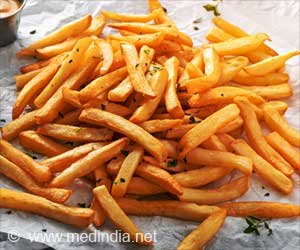Is Stress Driving the Brain to Crave Comfort Food?

To understand what drives these eating habits, the team investigated in mouse models how different areas in the brain responded to chronic stress under various diets.
“We discovered that an area known as the lateral habenula, which is normally involved in switching off the brain’s reward response, was active in mice on a short-term, high-fat diet to protect the animal from overeating. However, when mice were chronically stressed, this part of the brain remained silent – allowing the reward signals to stay active and encourage feeding for pleasure, no longer responding to satiety regulatory signals,” explains first author Dr Kenny Chi Kin Ip from the Garvan Institute.
Advertisement
“We found that stressed mice on a high-fat diet gained twice as much weight as mice on the same diet that were not stressed.”
The researchers discovered that at the centre of the weight gain was the molecule NPY, which the brain produces naturally in response to stress. When the researchers blocked NPY from activating brain cells in the lateral habenula in stressed mice on a high-fat diet, the mice consumed less comfort food, resulting in less weight gain.
Driving comfort eating
The researchers next performed a ‘sucralose preference test’ – allowing mice to choose to drink either water or water that had been artificially sweetened.
“Stressed mice on a high-fat diet consumed three times more sucralose than mice that were on a high-fat diet alone, suggesting that stress not only activates more reward when eating but specifically drives a craving for sweet, palatable food,” says Professor Herzog.
“Crucially, we did not see this preference for sweetened water in stressed mice that were on a regular diet.”
“In stressful situations it’s easy to use a lot of energy and the feeling of reward can calm you down – this is when a boost of energy through food is useful. But when experienced over long periods of time, stress appears to change the equation, driving eating that is bad for the body long term,” says Professor Herzog.
“This research emphasises just how much stress can compromise a healthy energy metabolism,” says Professor Herzog. “It’s a reminder to avoid a stressful lifestyle, and crucially – if you are dealing with long-term stress – try to eat a healthy diet and lock away the junk food.”
Source: Eurekalert
Source link
#Stress #Driving #Brain #Crave #Comfort #Food



